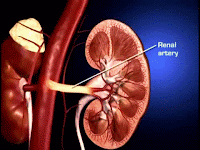Describe different organs of the body, systemic function and their inter-relationship
The human body is made up of many organs, each with its own unique function that contributes to the overall health and well-being of the individual. These organs are interconnected and work together in systems to maintain homeostasis, or the balance of the body's internal environment.
Here are some of the main organs of the body and their systemic functions:
- Heart- The heart is responsible for pumping blood throughout the body, which delivers oxygen and nutrients to the cells and removes waste products.
- Lungs- The lungs are responsible for exchanging oxygen and carbon dioxide between the body and the environment. They also help regulate the body's pH balance by removing excess carbon dioxide.
- Liver- The liver is responsible for processing nutrients and removing toxins from the body. It produces bile, which helps break down fats, and stores glucose for energy.
- Kidneys- The kidneys are responsible for filtering waste products from the blood and regulating the body's fluid balance. They also help regulate blood pressure and produce hormones that control red blood cell production.
- Stomach- The stomach is responsible for breaking down food into smaller particles and mixing it with stomach acid and enzymes. This process prepares the food for digestion and absorption in the small intestine.
- Small intestine- The small intestine is responsible for absorbing nutrients from food and transporting them to the bloodstream for distribution throughout the body.
- Large intestine- The large intestine is responsible for absorbing water and electrolytes from waste products before they are eliminated from the body.
- Pancreas- The pancreas is responsible for producing enzymes that help break down carbohydrates, fats, and proteins. Pancreas also produces insulin, which helps regulate blood sugar levels.
- Brain - The brain is responsible for controlling all bodily functions, including movement, sensation, thought, and emotion. It receives and interprets signals from the sensory organs and sends out motor signals to the muscles and other organs.
- Skin - The skin is responsible for protecting the body from external damage and regulating body temperature through sweat production and blood vessel dilation.
These organs and their functions are interconnected and interdependent, working together to maintain the body's overall health and well-being. For example, the heart and lungs work together to deliver oxygen and remove carbon dioxide from the body, while the kidneys and liver work together to filter waste products from the blood. The brain communicates with all of the other organs to coordinate their activities and maintain homeostasis. Without any one of these organs, the body would not be able to function properly










Comments